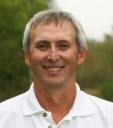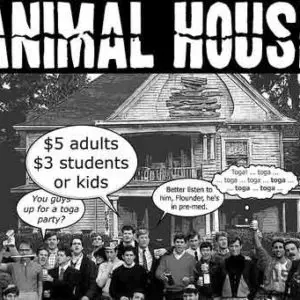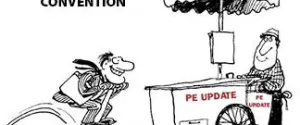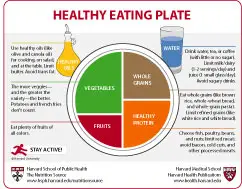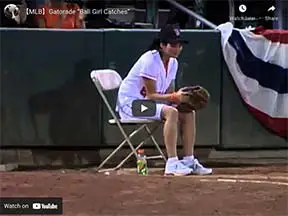Hi Readers,
I just received this email from long-time reader and physical educator, David Flax of South Africa. It raises some interesting questions about our perception of the causes of obesity, hunger and lack of activity.
————————–
“Hi Dick,
This is the newsletter written by the Principal of our High School… It is what Prof Tim Noakes had to say. Tim is the leading sports scientist in S.A. and the author of The Lore of Running. A kitkat is the name of a chocolate bar that we have. At most road races the participants are given a goodie bag with wine gums and a kitkat.
If you want to use it you are most welcome to it….Keep well
David”
———————–
“Dear King David Community,
 This week 250 school leaders, representatives from over 600 independent schools in this country and some from Australia and the UK, collected in Cape Town at the annual SAHISA conference to compare notes – in both formal and informal forums – on educational best practice. As is often the case, some of the most helpful discussions happened at mealtimes or in the bar before and after meals…
This week 250 school leaders, representatives from over 600 independent schools in this country and some from Australia and the UK, collected in Cape Town at the annual SAHISA conference to compare notes – in both formal and informal forums – on educational best practice. As is often the case, some of the most helpful discussions happened at mealtimes or in the bar before and after meals…
Many of the talks were inspiring, some challenging and I am happy to say that some of them very affirming. One, however, in particular is worth mentioning. It was delivered by professor Tim Noakes, Head of the UCT Exercise Science and Sports Medicine Research Unit and involved a book published in the early 1860s by a very fat undertaker, William Banting. (Banting’s information came from a certain Dr Willian Harvey, who in turn got his ideas from a Parisian, Dr Bernard.) This was the first recorded modern publication to do with a diet based on limiting the intake of refined, easily digestible carbohydrates.
At one point Tim Noakes held up the contents of the little goodie bag we had been presented at the beginning of the conference: a bag of wine gums and a kitkat, simple carbohydrates which he informed us would have so spiked our insulin and disrupted healthy nutrition that we would almost certainly notice a change in our energy absorption and our vitality for the rest of the day. Should we eat that amount of useless calories – he informed us – we could expect to increase our BMI significantly and experience a expansion of our mass by as much as 5kg in three months – just from consuming these two items every day. (I felt chastened – I had eaten the Kitkat before I got to the top of the stairs and the wine gums long before I eventually found my room.)
The really interesting part of Prof Noakes’s discussion though, was to do with the counter-intuitive notion that if insulin production results in one’s body storing as fat the energy presented as simple carbohydrates, the body would not then release this stored energy. This person would then be stimulated to feel hungry – since not enough energy was released. And also because the body was in conservation mode, there would be a significant drop in the fat person’s willingness to participate in physical activity.
Noakes’s point is that fatness causes hunger and lack of activity – and I had always believed that the causal links worked in the opposite direction: that one was fat because one ate too much and exercised too little. Surely this was as obvious as night following day?
On how many occasions did I hear my white-eye browed colleague tell all his pupils that we were lazy or stupid or incompetent, that we just could not…? I now know that he may have often been right, but I also know that he (and many others of his generation) was very often wrong and that he did a great deal of damage to many pupils.
From Noakes’s argument it is no great leap to question our educational models, to re-evaluate how learning happens and to think about what it is that makes a child a happy and successful pupil and a school leaver who takes on the world believing that she can.
There are so many occasions when the obvious and apparent answers not always the correct ones and that as parents and teachers, our job is sometimes think like fat undertakers and to look for processes and functions that are far from the evident. This may be to do with learning styles, recognizing different intelligences in children, helping children to plan or, as in my daughter’s case, simply to stop procrastinating for fear of failure and to get on with the job at hand.”
Dick Moss, Editor,
PE Update.com
To check out the PE Update.com website, Click Here!
To subscribe to the free Fun Stuff for PE Newsletter, Click Here!
[tags]physical education,obesity,childhood obesity,inactivity,exercise/code>[/tags]
